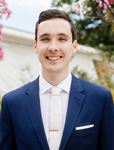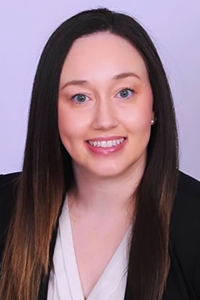
Popular Locations
- Yale New Haven Children's Hospital
- Yale New Haven Hospital - York Street Campus
- Yale New Haven Hospital - Saint Raphael Campus

The PGY2 residency in emergency medicine pharmacy is designed to transition PGY1 residency graduates from generalist practice to specialized practice, which meets the needs of patients in the emergency department setting. Upon completion of training, graduates are equipped to be fully integrated members of the interdisciplinary emergency medicine team, are able to prioritize responsibilities and utilization of resources, and are able to make complex medication recommendations in this fast-paced environment. Training focuses on developing residents’ capability to deal with a wide range of diseases and disorders that occurs in patients in the emergency environment.
The PGY2 emergency medicine residency consists of a series of learning experiences that span a 52-week period. Specific learning experiences and goals will be accomplished in discrete blocks of time, while others will occur longitudinally throughout the duration of the residency. Residency time will be generally structured as follows:
| Residency duration | 52 weeks |
| Orientation / Training | 2-4 weeks |
| Residency Learning Experiences | 48-50 weeks |
| Conferences (ACEP, ENA, ASHP, etc) | 1-2 annually |
| Interviews/Holidays/Time off |
14 days plus 3 interview days (not a continuous block) |
| 1. Orientation | 2-4 weeks |
| 2. EM - Introduction |
4 weeks |
| 3. EM - Core | 8 weeks |
| 4. EM - Preceptorship |
4 weeks |
| 5. EM - SRC | 4 weeks |
| 6. EM - Independent Practice |
4 weeks |
| 7. EM - Pediatrics |
2 weeks |
| 8. Psychiatry | Longitudinal |
| 9. Medical ICU |
4 weeks |
| 10. Trauma/Surgical ICU | 4 weeks |
| 11. Neuroscience ICU | 2 weeks |



| Name | Year of Residency | Current Position |
|---|---|---|
| Philippe Recalt | 2023-24 | Emergency Medicine Clinical Pharmacist at Dartmouth-Hitchcock Medical Center |
| Kelly Oldziej | 2022-23 | Emergency Medicine Clinical Pharmacist at Community Regional Medical Center |
| Allie Barton | 2021-22 | Emergency Medicine Clinical Pharmacist at Bridgeport Hospital |
| Taylor Sattler | 2020-21 | Emergency Medicine Clinical Pharmacist at Yale New Haven Hospital |
| Jesse Albano | 2019-20 | Emergency Medicine Clinical Pharmacist and Emergency Medicine Residency Program Coordinator at Yale New Haven Hospital |
| Kyle Hultz | 2018-19 | Emergency Medicine Clinical Pharmacist at Memorial Healthcare System |
| Jacklyn Chong | 2017-18 | Emergency Medicine Clinical Pharmacist at Los Angeles County Department of Health Services |
| Jessica Nagy (Vigneau) | 2016-17 | Emergency Medicine Clinical Pharmacist at Rhode Island Hospital |
The learning experiences will include a series of learning activities designed to expose the resident to many facets of pharmacy practice with guidance from the preceptor. An individual resident plan and calendar will be developed for each resident.
This residency site agrees that no person at this site will solicit, accept, or use any ranking-related information from any residency applicant.
Note: We are unable to accept applicants with F1 status/OPTs and unable to sponsor F1-B visas at this time.